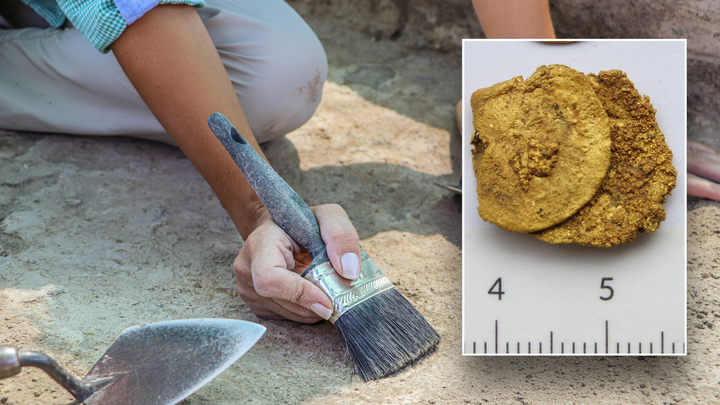Digging at a location in the northern Bulgarian village of Debnevo, archaeologists discovered the five Byzantine coins, which date back to the era of Justinian the Great. Dr. Stiliyan Ivanov, an associate professor at the National Institute of Archaeology and Museum, made the announcement about the dig on August 27.
Near a fortification from the fifth century, the village has been the focus of excavation efforts for the last five years. But when the coins were discovered among the remnants of a house from the tenth century, scholars were at a loss for words.
The coinage was more than 400 years older than the structure because Justinian governed the Byzantine Empire from 527 to 565 A.D.
in Ivanov stated to Live Science that the coins were probably discovered by medieval architects during the building of the house from the tenth century. Later that century, the house burned down, and archaeologists surmise that the site was abandoned shortly thereafter.
The inhabitants of the medieval era most likely preserved the coins as heirlooms since they would still have been valued in the tenth century. Ivanov said he is “very glad” about the amount of interest in the coins.







